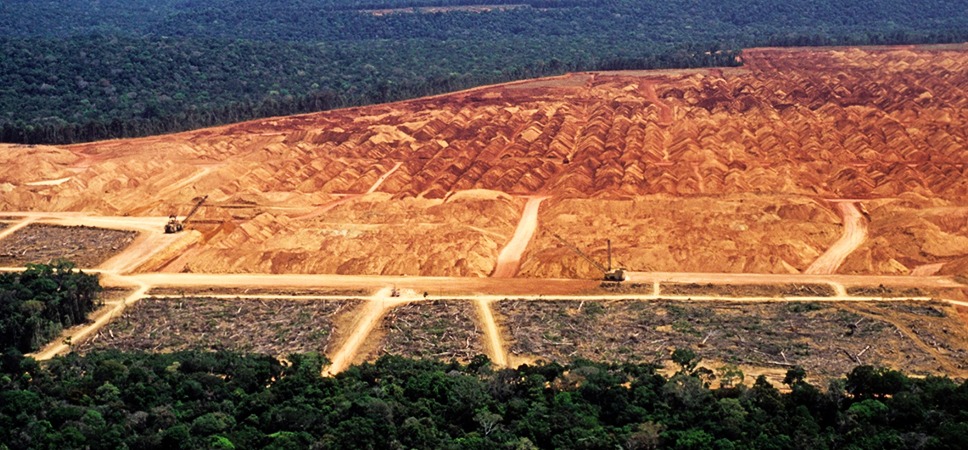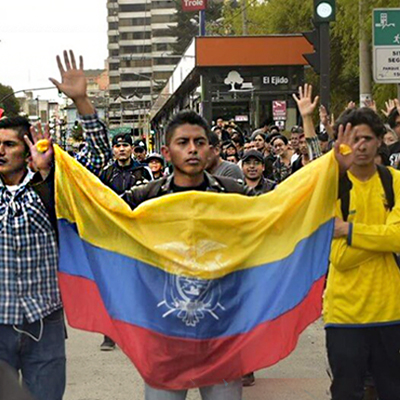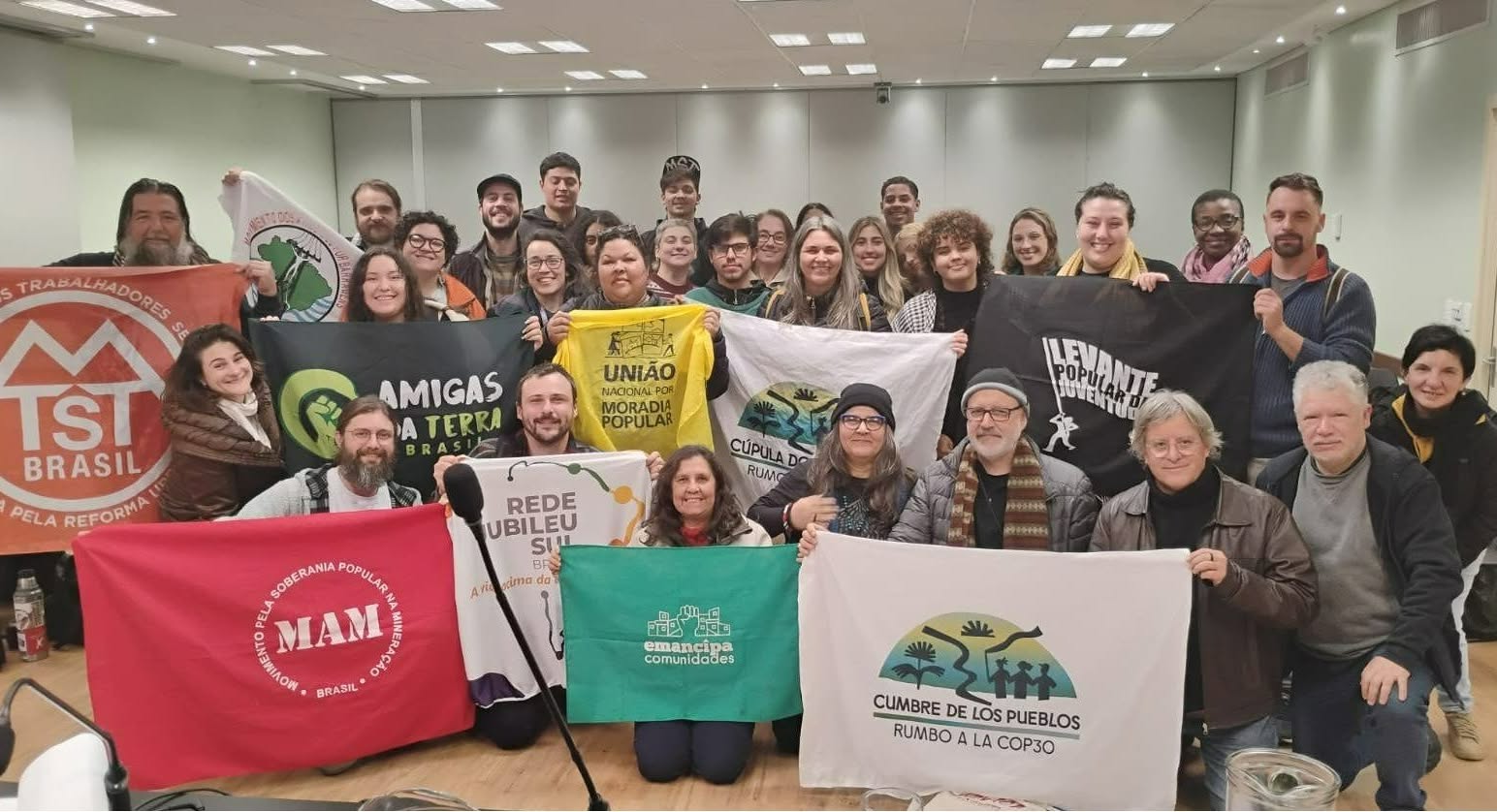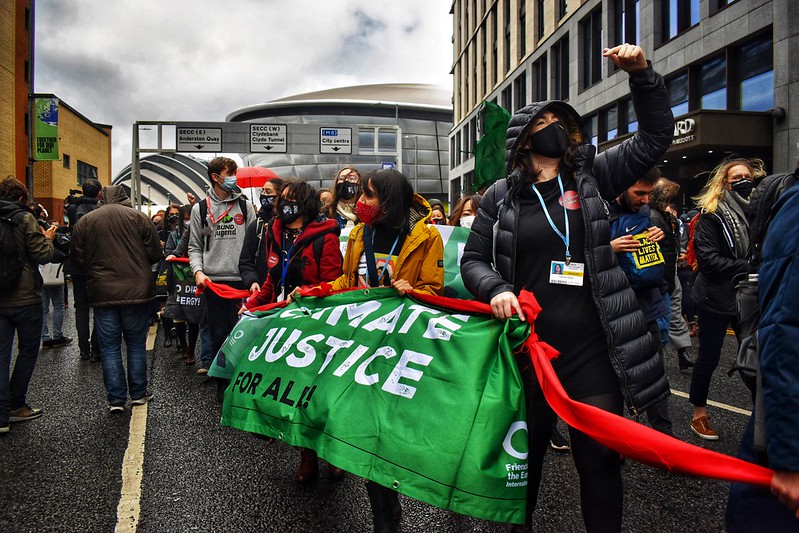UN scientific report warns about historic environmental devastation
We need to change the system or face ecological collapse, responds Friends of the Earth International

A scientific report issued on Monday states that the natural world is in a dire situation and that human actions have significantly altered nature in different parts of the world. “Human actions threaten more species with global extinction now than ever before. Around 1 million species already face extinction, many within decades, unless action is taken to reduce the intensity of drivers of biodiversity loss”, highlights the study.
This is a report produced by the Intergovernmental Science-Policy Platform on Biodiversity and Ecosystem Services (IPBES) which informs the UN Convention on Biological Diversity.
Environmental federation Friends of the Earth International, present in 75 countries, reacted on Monday to the scientific report with a press release and stated that when reading the new report it becomes evident that the world will face ecological collapse and mass extinction of species unless dramatic action is taken to change social and economic systems.
In order to deepen on the scientific report and its warnings and to know the perspectives of Friends of the Earth International regarding this new study, Real World Radio interviewed the coordinators of the Forests and Biodiversity and Food Sovereignty Programs of the federation, Nele Marien and Kirtana Chandrasekaran, respectively.
Nele explained that IPBES gathers scientists from different parts of the world who prepare reports for the UN CDB and recommend measures to be implemented. The work launched on Monday is a global assessment of the state of biodiversity and ecosystem services. It is a very important report because it is the first time we are “seeing a report going into so much depth on the state of biodiversity and ecosystems and which also clearly pinpoints the drivers and reasons why we are in such a bad shape”, said Nele.
The coordinator of Friends of the Earth International also explained the significance of there being so many threatened species. “The web of life, the way species interact with each other is getting increasingly weaker. All species depend on each other´s existence and ultimately humans also depend on many of the species. The most typical example is the bees needed to pollinate our foods. So the fact that species are disappearing so quickly now is really a problem”.
Meanwhile, Kirtana also provided her point of view about the severity of the current environmental crisis, welcoming the role played by the scientists and highlighting the negative consequences of the industrial agricultural system for biological diversity. “It is impossible to continue with the current industrial agricultural system”, she said and made reference to some of its consequences: decline of 75% crops in pollination, the loss of genetic diversity and violence towards indigenous peoples and communities. The activist considered that the report points the finger, among others, at the industrial food system and that it connects some phenomena, such as free trade with processes of land grabbing and extraction of raw materials in the Global South to the benefit of industrialized countries.
“The drivers behind the drivers”: A good report, but not enough
Friends of the Earth International welcomed several of the points raised by the IPBES report, but regretted that “despite its strong points, the report does not go far enough”. Nele and Kirtana mentioned to Real World Radio several important aspects of the new work, but shared that one of its greatest weaknesses is that it does not make reference to one of the key drivers of environmental devastation, with different types of projects: transnational corporations.
Nele stated “we are really happy with the report, it is saying a number of things which really needed to be said – pinpointing drivers”. Also, the report says we need a “transformational change and it is really great that some UN bodies are starting to say this”, something which, for instance, Friends of the Earth International has been saying for many years. “Yet this report does not analyze who are the drivers behind the drivers and who are the ones who are really responsible for driving industrial agriculture and who are pushing for more mining, etc. These are of course the corporations and although the report mentions corporations, it is only a few times and there is no analysis of the power and economic structures that lead to the power of these drivers”.
Along a similar line, Kirtana highlighted in a positive light the fact that the report is good at pointing out the problems we are facing- the dramatic collapse of our ecological systems, because of industrial agriculture, mining, logging, large scale bioenergy production, urbanization and that we need to urgently take strong regulatory action to address these issues. But from FoEI’s point of view it is impossible to address any of these problems without talking about who is benefiting from the current situation. And the main beneficiaries are transnational corporations. These actors are able to frame laws how they want, get as much finance and capital behind them as they need”, said Kirtana.
The coordinator of Friends of the Earth International´s Food Sovereignty Program highlighted that it is unsustainable to continue producing food through extensive agriculture and that the IPBES report makes reference to the impacts of this type of production. Nevertheless, the activist regretted the fact that the study did not mention that it is agribusiness the one that benefits from this food production model that loots natural resources.
Nele and Kirtana also highlighted that the IPBES report recognizes the role of indigenous people in the protection of biodiversity and ecosystems and also the role played by local and fisherfolk communities, who are also fundamental to produce quality food. Nevertheless, the activists warned that indigenous people are persecuted, criminalized and murdered.
“Happily the report does mention indigenous peoples and local communities, and they do really recognize that territories which are managed/governed by indigenous peoples and local communities are the ones in the best shape and that we really need to help protect these territories”, said Nele. And Friends of the Earth International has been saying this for so long, that we need to stand by indigenous peoples and local communities and we need to make sure they have their rights recognized and protected so they can defend their territory”, she explained.
However, there is so much pressure on them, she highlighted. When the indigenous peoples say no to infrastructure, mining, oil exploitation, agrocommodoties, palm plantations, among other projects, there is “huge conflict, violations of their rights, including a huge number of killings”, stated the activist.
Meanwhile, Kirtana highlighted the key role of indigenous people and local communities in the protection of biodiversity and ecosystems and food production, even “under very extremely difficult circumstances”. “They are being increasingly criminalized, there is a lot of violence towards them and they receive very little in terms of government support”, she denounced and added “how can we expect local indigenous communities to do what they do, to produce food and look after our systems and show us the way forward in the face of the unequal power dynamic”.
Kirtana also highlighted that the report “mentions the role of agroecology” and that this is something positive, but not in a comprehensive enough way for Friends of the Earth International. She explained that agroecology “has been practiced by several millennia by indigenous peoples, small scale food producers -pastoralists, small scale farmers, fisher folk- which is currently feeding 70-80% of the world right now. With regards to this, the activist stated that it is “entirely possible” to move our entire food system to an agroecological based system. That´s why it is necessary to “dismantle the power of agribusiness corporations over the food system and make public policy choices that put control back in the hands of small scale food producers.
“We need system change”
The IPBES report states that a “transformational change” is needed, even in global financial, social and economic structures. Friends of the Earth International believes that what is needed is system change.
Nele stated that “transformational change must really go to the core which means attacking the corporations”, which are the main drivers of environmental devastation. “That is what we understand as real system change- making sure that the system on which the corporations are based, the financial system, everything that makes up the system that enable to drivers to get stronger and stronger, needs to be tackled”. “And at the same time it goes together with the necessity to give power back to the people so that we get food sovereignty, agroecology, small scale fishing, community energy, among others. That would be real system change”, added Nele.
Also, Kirtana recognized that it is a step forward the fact that the report talks about the need for “transformational change”, but she was critical about the fact that there is no discussion about how this change should be. “This report is not providing a clear path out of this crisis. It says a lot of useful things about the impacts, but we need to be more clear about the kind of system that we need”, explained the activist.
In addition, IPBES mentions in its report that one of the causes of the environmental crisis is population growth. “The report mentions population growth as a driver, unfortunately, without discussing the fact that it’s completely unequal consumption that is the driver, not population”, said Kirtana. The activist argued that “50% global emissions are produced by 10% of the population or as the report mentions, the consumption of all resources we extract from earth in the industrialized world is three times as much of other countries and even double that of middle income countries”. It is not right to talk about population as a driver”, she stated.
The coordinator of the Food Sovereignty program at Friends of the Earth International welcomed the fact that the IPBES report talks about the need for global transformation, including economic, social, regulatory structures. But she highlighted that what is needed is system change. “System change means for us going to the very basis of what our economic system works on, which is the accumulation of capital – that is the capitalist system that we are in – which relies on an accumulation based growth model, and ultimately that is coming from plundering extractive resources from the earth. This model is not sustainable”, concluded Kirtana.






